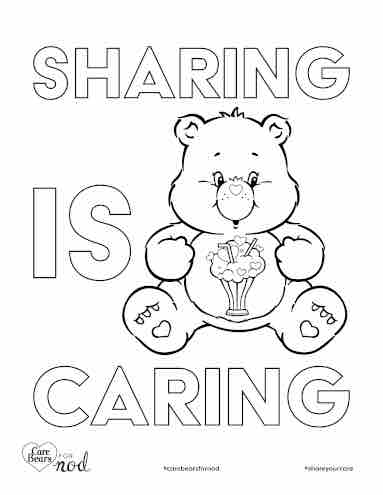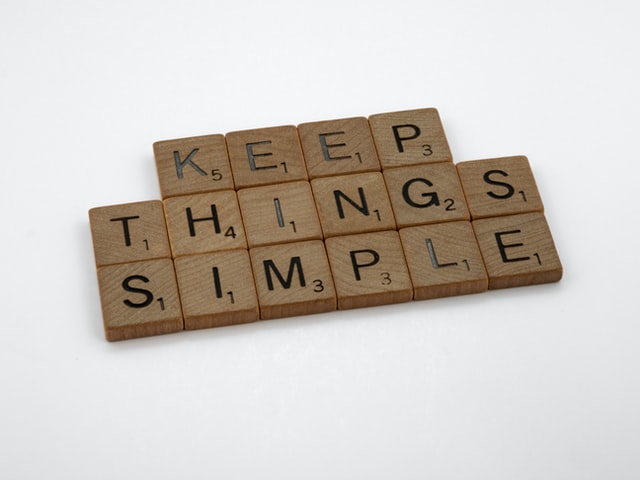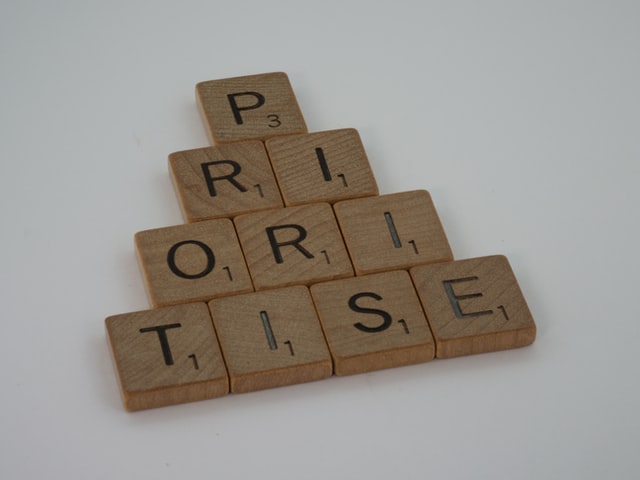A noob sales engineer
5 things I learned as a noob sales engineer

My Sales Start
My sales career started with a conversation (like all good things in sales).
My friend Tony Phan had started a sales engineer role, it sounded interesting but not something I wanted to pursue.
During one of our catchups he subtly mentioned sales engineer salaries 🤑, this combined with the opportunity to stay in technology seemed too good to be true! A year later I went through the interview process and accepted an offer at VMware as a specialist sales engineer.

Why this blog post? The quote from the Care Bears above sums it up nicely. I may only have a meagre 2 years under my belt but sharing my experience through the lens of a noob may help others.
The Sales Engineer Noob
Being a complete noob to sales I envisioned a world similar to the movie Boiler Room. Ben Affleck’s speech “You have to be closing all the time!” seemed appropriate to describe this new world 😂 Note there is profanity in this video clip
For those completely new to this field let me briefly explain the mechanics of how it works (at least in my experience). Engineers are paired with a sales person or multiple sales people. You are assigned a territory which could be an entire state (like NSW, QLD) or perhaps specific accounts in a state (it depends on the organization). You are both accountable for the “number”, a sales target that needs to be achieved to earn commission.
Commission was foreign to me, how did it work? Each organization is different but sales engineers generally have a higher guaranteed salary percentage than their sales counterparts (the trade off is the sales person’s OTE is a lot higher - more on that soon). I am on a 80/20 split, 80% guaranteed and 20% variable. I like this split as I don’t think I could handle the stress of earning less if I did’nt achieve target. Hit your targets and you will earn the remaining 20%, the total is known as OTE (On-Target Earnings). The nifty thing about sales is if you exceed your targets you can earn more commission.
Where does my work come from? Approximately quarter of my work comes from my sales counterparts. They may have qualified an opportunity and need me to perform a technical demo or attend a meeting as the techie. Another big item that we work on together are tender responses. They may also facilitate trials or POC (Proof of Concepts) which you will run with the customer. This work I class as “pre-sales”.
The Core Sales Engineer (aka Core SE) and TAM (Technical Account Managers) generate the majority of my work. They have a close relationship with customers and request our assistance to run customer deep dive presentations or workshops. These sessions are education mixed with what I term “pre-sales support”. Customers will have legitimate issues that may require a feature request to resolve. It’s our job to influence engineering to prioritise the new feature on the roadmap. We want customers to get value from what they have purchased. This work I class as “post-sales”.
Activity! Activity! Activity! Initially I struggled to understand what exactly this meant. In a nutshell sales leaders want to know what activity you are driving in your territory or accounts to ultimately increase sales. This could be in the form of a webinar to internal teams, public webinars, public events, targeted workshop with customers etc.
Now that I’ve covered the basics of the role here are 5 things I learned as a noob sales engineer
1 Technical Depth
You need to know the technology you are selling! The customer, your sales person, your company expects this - and rightfully so.
Less is more! As techies we are comfy with tech and get giddy when someone asks a technical question. The floodgates open and we are eager to explain everything in extreme detail (finally we can showoff our knowledge 😉). The wheels can fall off quickly if the audience is not technical or the answer is not well articulated confusing the customer. Judgement is required when to provide a high level answer or answer with the appropriate level of technical depth. Less is more, is a simple tip and I’ve seen experienced sales engineers do the opposite.

Another tip: Try and learn the technology around your technology when appropriate. Let me explain, vRealize Automation has integration with Ansible. Learning Ansible added to my overall knowledge but rather than say “Our product has integration with Ansible” I can add color to the topic and explain exactly how the integration works.
2 Listening
Everybody wants to be feel like they are being heard, it’s a basic human need. The easy path for a sales engineer is to steamroll into a customer meeting and talk about the fancy bells and whistles of the product. Stop! Ask yourself, does the customer care about you? your product or your company?
The customer cares about themselves! This could be in the form of technical or business pain points. The steamroll approach is not an effective way to get the customer’s attention. This approach is like throwing things at the wall and hoping something sticks.

I prefer to get customer talking and listen to their needs. Echoing their words back is not listening, ask questions, uncover insights, try and understand their perspective. Discovering more about the customer helps me understand which capability or feature may help solve their pain points. If all goes well the customer trust level goes up, they know I am actively listening to them vs pushing a product.
Let me give you an example. In a recent customer meeting (with a sales engineer from another business unit) we discovered the customer wanted to move to Azure public cloud. The sales engineer proceeded to pitch the AWS version of their product (we have an Azure version). My jaw hit the floor!
With 10 minutes left there was not enough time for my pitch. I decided to open with a few questions to discover more. During this process I found they were trialing a product in my portfolio and needed assistance. I offered to help with a dedicated troubleshooting session and answer their product questions. My sales counterpart and I were successful in securing a followup meeting, all it took was some active listening and making them feel heard.
3 Relationships
Customer relationships are important, that’s obvious. In this role I underestimated how important internal relationships were.
Core SEs are closer to customers and are the first to sniff out opportunities or create them with customers. I assumed they would pull me into customer conversations for products in my portfolio. Most SE’s engaged me but a few would not. This manifested itself in a few ways, left off emails, no response to emails etc.
Tip: You need thick skin and not take things personally. It could be internal issues as described or difficult customers, the important thing is to figure out how to move on. My laid back attitude helped to not take things personally (Interestingly it was never a personal attack).

Teamwork makes the dream work!
My experienced sales counterpart provided me some sage advice which helped me immensely. It was to brand yourself internally, make yourself known for something. I became the vRealize Automation person building cool demo’s we could show customers. My manager got me to present to the Core SE team and as word spread I presented to the wider APJ team. I was also blessed with the opportunity to showcase the same demos at VMworld 2020. I now had a reputation and found Core SEs were pulling me into customer conversations. Building on that trust I was being engaged for other products in my portfolio.
What about customer relationships? Companies often talk about being trusted advisors which can help influence deals. To me it’s pretty simple, put the customer first.
How did I translate this into the sales world? Let me share an example. A customer reached out to trial a product after a presentation I gave. Over the next month or two I spent a few hours a week helping the customer meet our agreed success criteria. There was no deal within sight, the customer was not a decision maker, I wasn’t pushing a product but simply supporting him. Trust was building over each session, he convinced his manager to see the value in what we were doing. His manager then asked us both to present to the wider IT organisation so they could see how this aligned with their vision for IT.
Still there was no deal and the conversations died down once we reached the end of the trial. A few months later they signed a large SaaS deal with us for the same product. Was that all me? Definitely not. My sales counterpart and the account team did their magic in the background to make sure commercials meet requirements. But did I influence that deal? Was I a trusted advisor? Without blowing my own trumpet I would say yes.
4 Be Dynamic
The role requires an individual that can adapt to change (the obvious one being across changes in technology). But I learned you need to be dynamic in other areas.
In previous roles I was accustomed to sufficient lead times for customer meetings and cancellations were rare. In this role it was not uncommon for customer meetings to appear in my calendar the same day and cancellations were not uncommon. Put simply I needed to be flexible to meet the customer’s schedule. Anytime a sales engineer can get airtime with a customer this is an opportunity to help or educate them and ultimately expand our footprint.
Tip: Be Prepared! Know your product(s), value propositions, have common use cases you can talk to. What helped me immensely was building up a repository of demos (they are always more engaging than powerpoint). When those last minute meetings come up you are ready or at least have a good base to start from!
Shadowing experienced colleagues I noticed they were dynamic. The meeting might be about topic X but topic Y may come up and they were able to shift easily. Going into meetings you might have a message or presentation format you want to get across but you have to adapt to what the customer wants.

Sports are dynamic, an SE needs to be dynamic!
Let me share an example that took a nose dive. After a lot of work by the team our tender response was successful and we were invited to demo our capabilities. I presented first and had my presentation format prepared. Naturally questions came up and I was able to answer with the appropriate level of depth. Where applicable I showed capabilities or features they wanted to know more about. Being able to pivot during the meeting reflected well on the company and myself. Customer trust was building and it was due to a combination of everything I’ve described so far (Technical Depth, Listening, Relationships, Be Dynamic)
What happened next? The next SE started his presentation. Within a few minutes the customer asked a few questions. The SE did not provide clear concise answers and attempted to move on with the demo (they attempted to move on a few times). Viewing the situation through a customer lense having their objections answered is a fair expectation when potentially spending over a million dollars with a vendor. My colleague dealt with a major objection by eventually falling back on the line “it’s on the roadmap”. The trust built up was quickly eroding and the customer was questioning everything being presented (not in a good way).
Where did it go wrong? From my perspective it was 2 things. Lack of preparation and failing to be dynamic. My colleague tried numerous times to continue the presentation but the customer stopped them due to lack of interest in the content being presented or not having their questions answered sufficiently. To continue building trust required answers with sufficient technical depth and the ability to determine which capabilities or features the customer would be interested in (be dynamic).
5 Prioritise
Everybody in sales thinks their customer and their opportunity is important. Are they wrong? No, they may have spent weeks, months even years influencing and turning their work into something tangible.
Being pulled into engagements is a good thing but focus is required. Account teams may think they are more important than other account teams so we need to filter incoming requests. The types of things we need to discover are: What does the account team need from me to progress the opportunity? How far along is the opportunity? How much effort is required from the specialist team? What is the dollar figure of the opportunity? Are we likely to win this opportunity?
When you are time rich this is not an issue, you can give each opportunity or engagement the attention it deserves. When you are time poor you need to prioritise and focus your time in the correct places.

Tip: Don’t be afraid to push back! Being buried in my first large tender response helped me realise this. The tender was significant revenue if we won, combined with the time pressure it was on the top of my list. The usual workshops and presentations were put on hold and if teams wanted to engage me it would have to have a significant opportunity associated.
I learnt the importance of disengaging! In a previous example I mentioned working closely with a customer and how that turned into a large SaaS deal. There have been other engagements that turned into nothing. You do get better at sniffing out real opportunities but the most promising engagement can turn to nothing. Agreeing on success criteria with the customer early in the engagement is important to have an exit if the engagement goes nowhere. Time is precious in sales, you don’t want to be stuck in an engagement with no end in sight and no opportunity to influence or close.
Protect your time. In sales when “stuff” needs to get done you do it. Late nights, weekends can be the norm when preparing for important presentations, tender responses etc.
I’ve become better at protecting my time. Account teams will want you for their engagements but have no visibility of other work you are committed to. Some people will see that last 30 minute slot in your calendar and invite you with the expectation you will make it….after all your calendar says you are free. I’m not afraid to push back now, it could be I am working on something else, preparing for another meeting, working on demos. Initially I made the mistake of saying yes to everything which meant a lot of late nights just catching up on things.
Summary
You’re still reading? Haha thanks!
I’m not going to pretend I am a guru at being a Sales Engineer but these few things have helped me be successful in my 2 years at VMware. If I had to sum it all up into a nice concise statement I would quote Matthew 7:12
“In everything, therefore, treat people the same way you want them to treat you…..”
